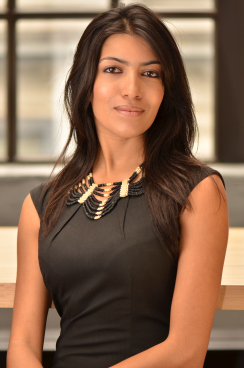 We are excited to share that Kevin Doyle Jones and Vineet Rai will be meeting online to discuss the future of impact investing, and share their unique perspectives on emerging developments in the global impact investment movement. You are invited to watch Kevin and Vineet’s Impact Investing 2.0 webinar on Friday July 24th 12pm-1pm Eastern Time/9am - 10am Pacific.
We are excited to share that Kevin Doyle Jones and Vineet Rai will be meeting online to discuss the future of impact investing, and share their unique perspectives on emerging developments in the global impact investment movement. You are invited to watch Kevin and Vineet’s Impact Investing 2.0 webinar on Friday July 24th 12pm-1pm Eastern Time/9am - 10am Pacific.
Sign Up for the Impact Investing 2.0 Webinar Here
This webinar will be recorded. If you are uncertain whether or not you will be available to watch the webinar the day of the event, sign up for the event to be notified when the video is released online.
A Conversation Between Two Leaders in the Impact Investment Movement
The webinar promises to offer a provocative and forward looking conversation between two of the most knowledgeable figures working in the impact investing space today:
Vineet Rai is the Co-founder and Chairman of Intellecap, convener of Sankalp Forum - one of the foremost convening platforms for conversation on global inclusive development. He is also the Founder and Managing Director of Aavishkaar and he chairs the Board of Villgro, an incubating and funding platform, and IntelleGrow, an Intellecap subsidiary, which provides venture debt services to impact enterprises. His career has included work in early-stage venture capital, microenterprises, microfinance investments, incubations. Vineet also served on the International Development Working Group of G8 Task Force on Impact Investing in 2014.
Kevin Doyle Jones is a Co-Founder and Convener of SOCAP and the founder of Good Capital, an Impact Investment Fund which created one of the first social enterprise expansion funds (SEEF). His latest GoodCap incubated project can be found at NeighborhoodEconomics.org.
Topics for Discussion
Potential topics for conversation during the Impact Investing 2.0 webinar include:
- Questions for the Future of Impact Investing: Where are we headed? Are we at the cutting edge or playing it safe? Are we effectively leveraging technology and analyzing data to inform the future of impact investing?
- Course Correction: Should we rethink the relevance of impact investing? What is the new benchmark we should set?
- Collaboration: How we do we enable effective collaboration and move towards exponential growth realization? Who are the new players, how do we enable quick integration for them
Let us know what topics related to impact investing you are most interested in hearing discussed during this conversation. When you sign up for the webinar, please submit your questions for Kevin Jones and Vineet Rai.
Watch Kevin and Vineet On Stage Together at SOCAP14
Kevin and Vineet last appeared together on the SOCAP stage in 2014 at the closing plenary session. During that conversation, which was moderated by Penelope Douglas, Kevin and Vineet looked to the future of impact along with entrepreneur Catherine Hoke of Defy Ventures and Lisa Sharon Harper of the Christian social justice organization, Sojourners. To see Kevin and Vineet in conversation before the Impact Investing 2.0 Webinar on Friday, July 24th, watch the video of that panel:




